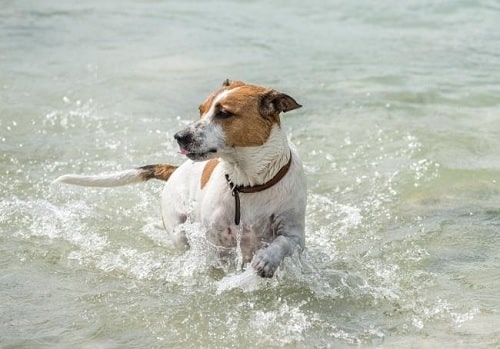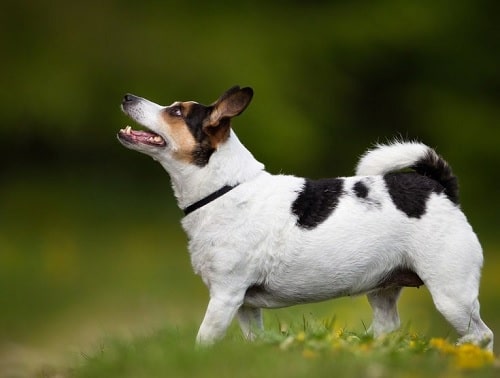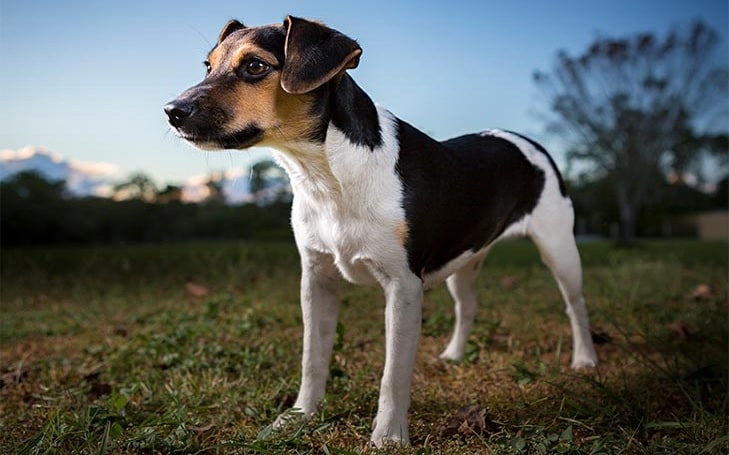Danish-Swedish Farmdog Diets
When you look at the Danish-Swedish Farmdog, you might at first get it confused with the Jack Russel Terrier. However, these two are completely different breeds although they look similar. This breed is very friendly, affectionate, and lively which makes it an excellent family companion.
A healthy Danish-Swedish Farmdog needs a good exercise, happy environment and most of all a healthy meal. In this article, you will learn about the diets, feedings, supplements and many more need for a healthy life of your dog.
Diets
Danish-Swedish Farmdog needs a complete diet for healthy and happy living. Their meal should contain all the nutrition required for them which helps to keep their body in good health and shape.
Protein: Protein is one of the most essential nutrients in your dog’s diet. It helps keep their muscles toned and bones stronger. It also helps to make nails, skin, hair healthier. Your dog needs around 18% of protein on its diet whereas the puppy needs around 28% of protein on its daily diet.
Fat: Fat supplies energy to your dog and also making its skin, hair healthy and shiny. Omega-3 and Omega-6 fatty acids are two important fatty acid needed in your dog’s diet. Your dog needs around 5% of fat on its regular diet.
Carbohydrate: Carbohydrate on your dog’s diet provides him energy throughout the day. It also generates heat which keeps your dog’s body warm. A growing Danish-Swedish Farmdog needs around 20% carbohydrate on its daily diet.
How Much to Feed the Danish-Swedish Farmdog
Feeding your Danish-Swedish Farmdog depends on its age, size, and activity level. A 6-12 weeks old puppy should be fed 4 meals a day as they are in a developmental phase and need more meals to keep up with their growing body. For 3-6 months old puppies, 3 meals a day is enough as most of their body parts are matured.
For 6 months and older Danish-Swedish Farmdog, 2 meals a day is enough to keep them full for the day. However, if your dog is begging for some more, a little healthy treat can be given sometime after their training or a small portion from your plate.

Image Source: DogsAholic
Dog Food For The Danish-Swedish Farmdog
You can make dog food at home itself but a measurement of nutrition is needed to give your dog a balanced diet. However, if you are buying manufactured dog food, go for high-quality food that has all the nutrition required for your dog based on its age.
Here are the list of dog food brand that you can choose from to feed your Danish-Swedish Farmdog.
- Purina Pro Plan
- Wellness Complete Health puppy food
- Taste of Wild
- Merrick Classic Healthy Grains Puppy
Supplements For The Danish-Swedish Farmdog
Supplements should only be given to your Danish-Swedish Farmdog if he is not getting all the nutrition from its diet. If it is them there is no need to provide him extra supplements as it can have adverse side effects.
- Glucosamine
- Probiotics
- Fish Oil
- Multivitamins
- Antioxidants
Human Food That Danish-Swedish Farmdog Can and Cannot Eat
We cannot ignore our dog’s puppy eyes that is begging for food while we eat. Giving small portion of food from our plate will not have any bad effect on the dog but too much can sometime make the health of your pooch bad. Also, some food that do great benefit to out body is equally toxic for out dogs. So know if your dog can eat that food before feeding him from your plate.

Image Source: Doggie Designer
Can Eat
- Meat
- Fish
- Eggs
- Apples
- Watermelon (without seeds)
- Popcorn (limited)
Cannot Eat
- Lime
- Garlic and onions
- Raisins and grapes
- Chocolates
- Avocado
- Caffeine
Why is Your Danish-Swedish Farmdog Not Eating?
- A digestion problem might be making your dog lose appetite. Most of the time, dogs treat it themselves by eating grass which helps to clear their bowel. However, if your dog does not get better by it, take him to a vet for a proper check-up.
- Your Danish-Swedish Farmdog might be having dental problems like swollen and bleeding of the gum. Check if there is anything wrong with their teeth or mouth and if there is, take him to a vet.
- A change in the environment and feeding routine can also affect the appetite of most dogs. If you have recently shifted somewhere with your dog or if there is a change in their feeding time, it might be the reason for your dog not eating properly.
Visit Doglime for more dog breed information and their feeding methods.
Tags










